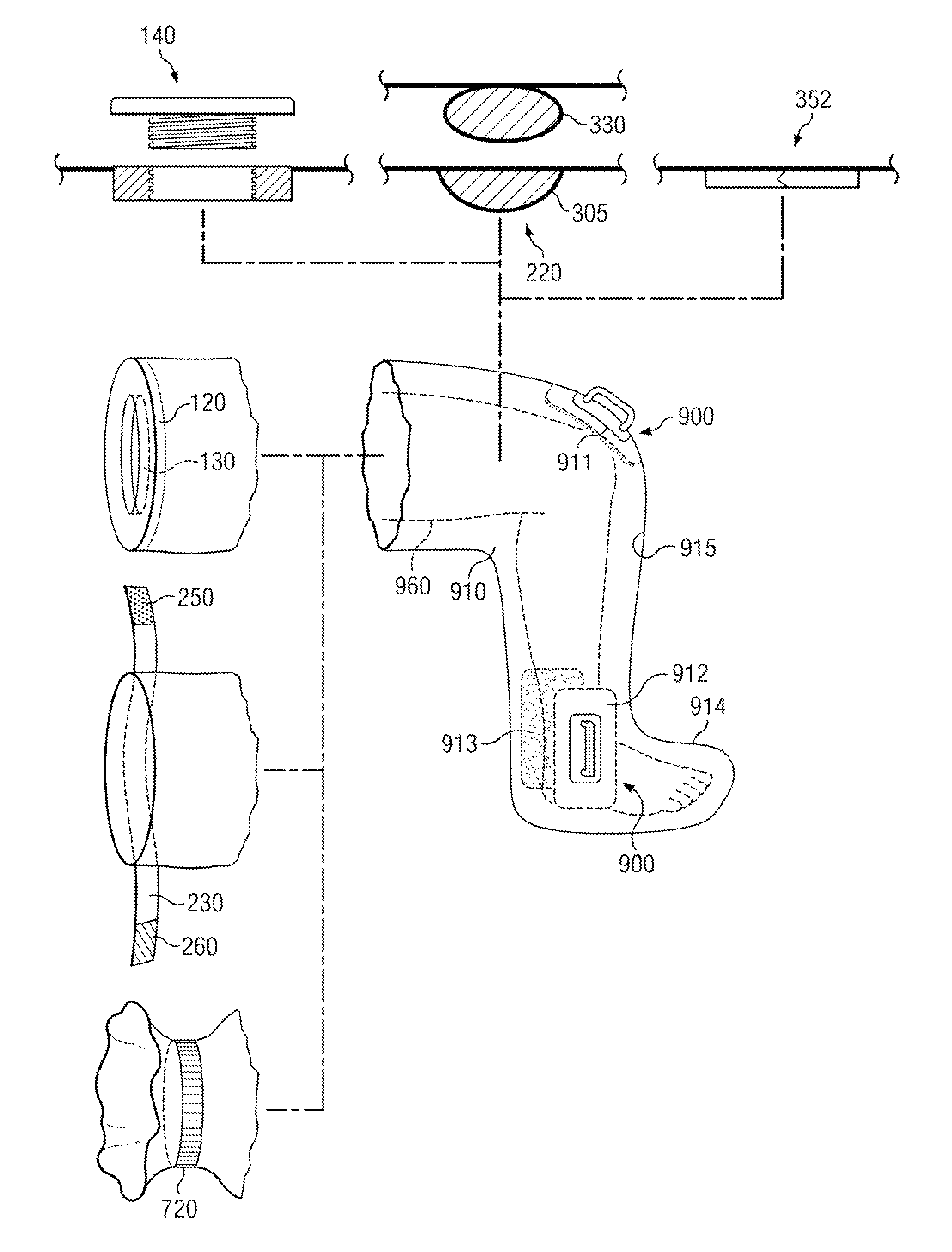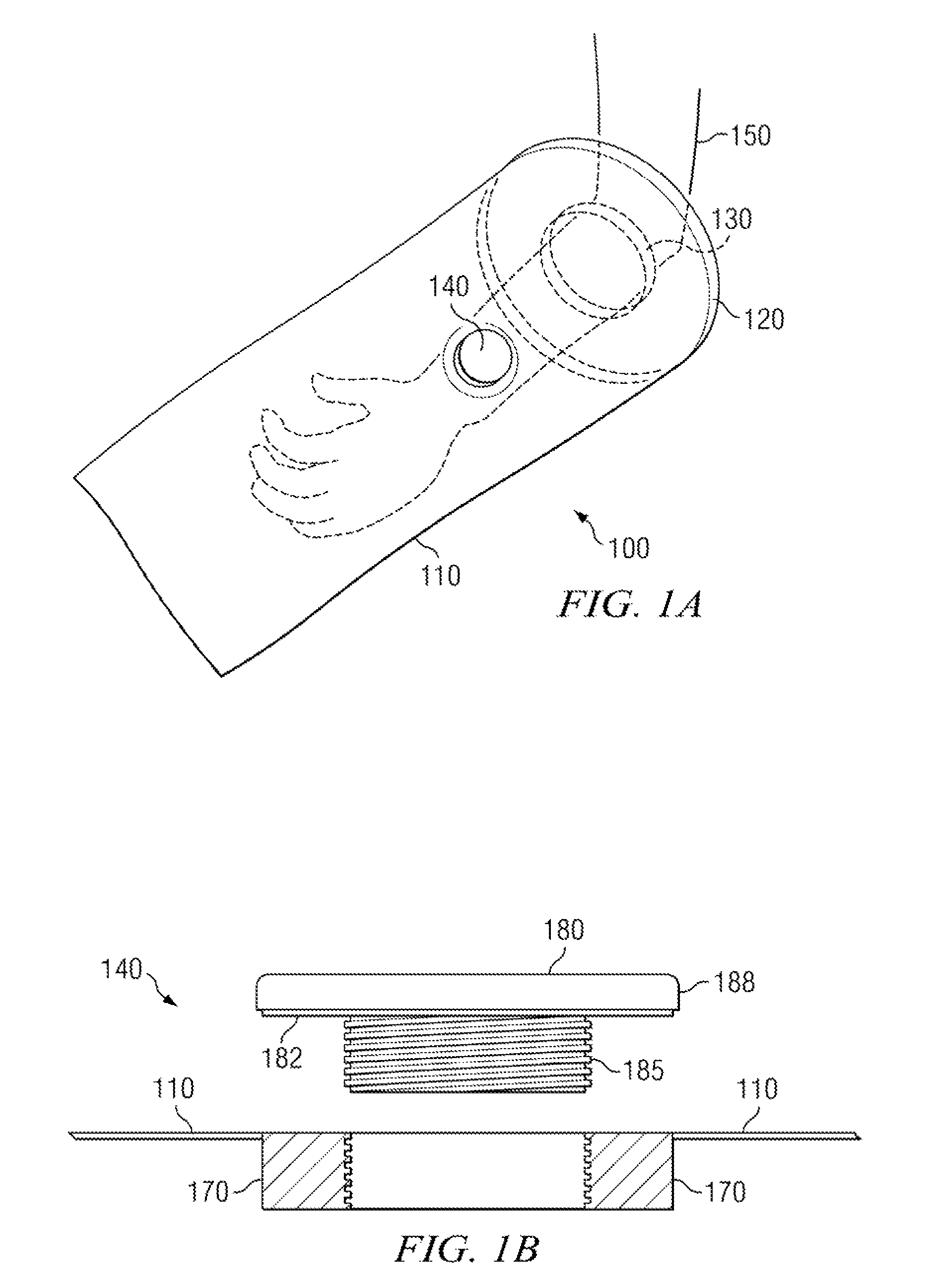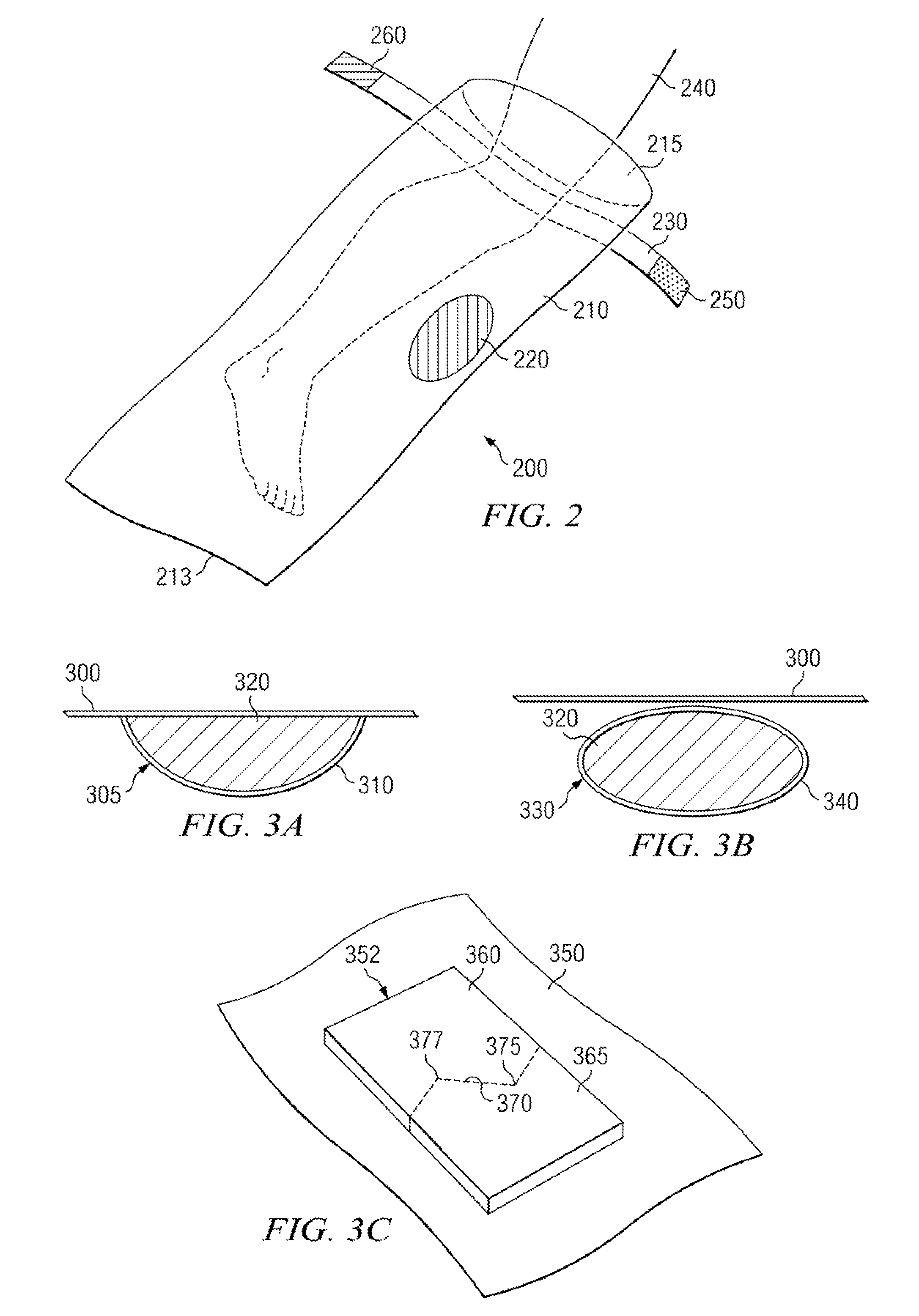Apparatus and method for deploying a surgical preparation
a surgical preparation and apparatus technology, applied in the field of apparatus and methods for deploying surgical preparations, can solve the problems of causing a safety hazard, a potential for infection, and a high risk of infection, and a high risk of surgical infection
- Summary
- Abstract
- Description
- Claims
- Application Information
AI Technical Summary
Benefits of technology
Problems solved by technology
Method used
Image
Examples
Embodiment Construction
[0048]FIG. 1A shows a preferred embodiment of solution applicator 100. Solution applicator 100 includes application bag 110. In the preferred embodiment, application bag 110 is made of HDPE (high density polyethylene) which is typically translucent, but not fully transparent. In other embodiments, the application bag can be made out of LDPE (low density polyethylene) and can be quite clear, but still not totally transparent. In other embodiments, LLDP (linear low density polyethylene) can be employed where a higher structural rigidity is required by the cleaning process. Other flexible sheeting can be used so long as it is inert with respect to the antiseptic solution.
[0049]In another preferred embodiment, the interior and / or exterior of the application bag can be textured to increase the effectiveness of the application of the antiseptic to the patient. If on the exterior of the application bag, the purpose of the texturing is to increase friction between the hands of the user and ...
PUM
 Login to View More
Login to View More Abstract
Description
Claims
Application Information
 Login to View More
Login to View More - R&D
- Intellectual Property
- Life Sciences
- Materials
- Tech Scout
- Unparalleled Data Quality
- Higher Quality Content
- 60% Fewer Hallucinations
Browse by: Latest US Patents, China's latest patents, Technical Efficacy Thesaurus, Application Domain, Technology Topic, Popular Technical Reports.
© 2025 PatSnap. All rights reserved.Legal|Privacy policy|Modern Slavery Act Transparency Statement|Sitemap|About US| Contact US: help@patsnap.com



